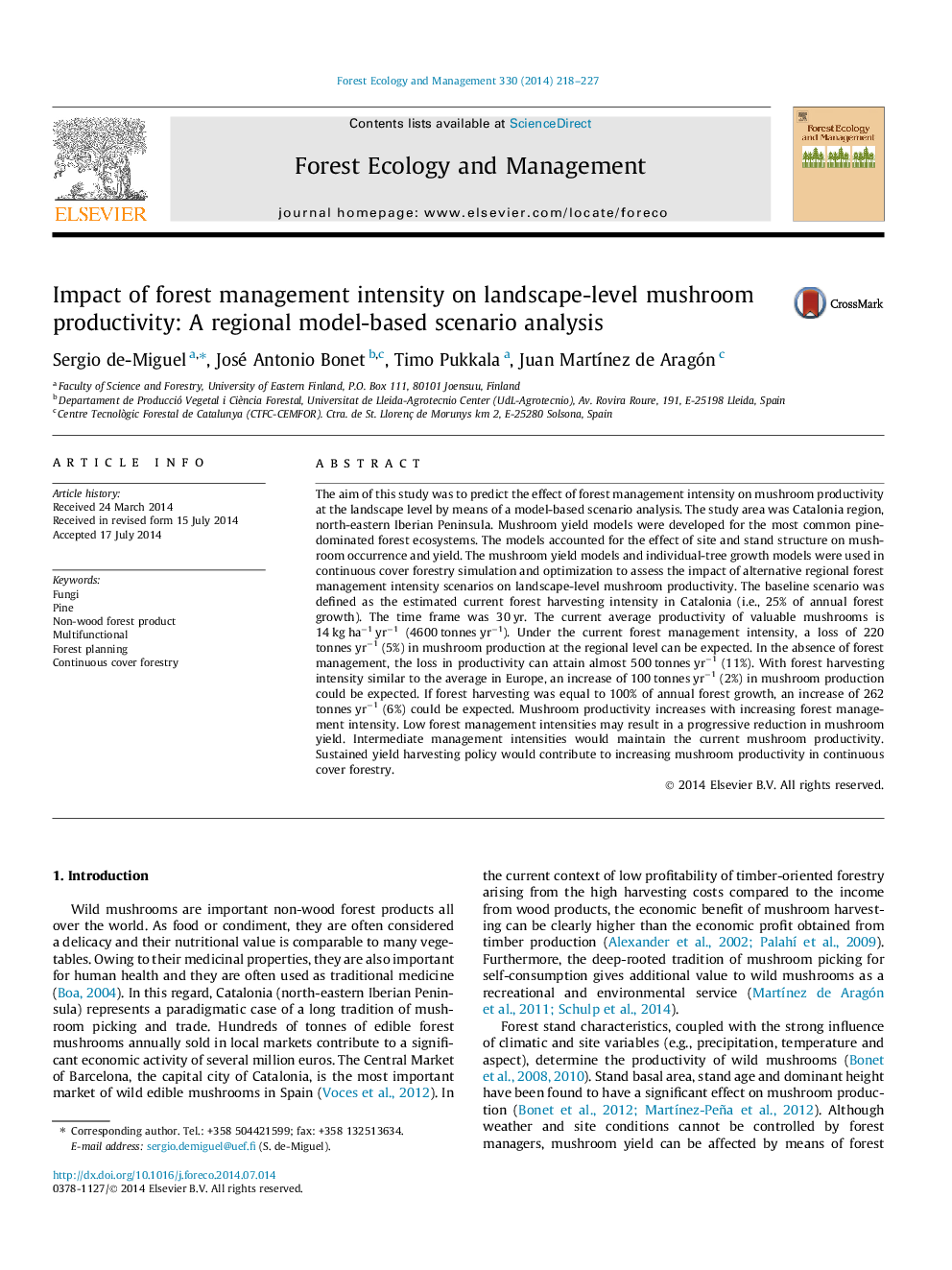| Article ID | Journal | Published Year | Pages | File Type |
|---|---|---|---|---|
| 6543357 | Forest Ecology and Management | 2014 | 10 Pages |
Abstract
The aim of this study was to predict the effect of forest management intensity on mushroom productivity at the landscape level by means of a model-based scenario analysis. The study area was Catalonia region, north-eastern Iberian Peninsula. Mushroom yield models were developed for the most common pine-dominated forest ecosystems. The models accounted for the effect of site and stand structure on mushroom occurrence and yield. The mushroom yield models and individual-tree growth models were used in continuous cover forestry simulation and optimization to assess the impact of alternative regional forest management intensity scenarios on landscape-level mushroom productivity. The baseline scenario was defined as the estimated current forest harvesting intensity in Catalonia (i.e., 25% of annual forest growth). The time frame was 30 yr. The current average productivity of valuable mushrooms is 14 kg haâ1 yrâ1 (4600 tonnes yrâ1). Under the current forest management intensity, a loss of 220 tonnes yrâ1 (5%) in mushroom production at the regional level can be expected. In the absence of forest management, the loss in productivity can attain almost 500 tonnes yrâ1 (11%). With forest harvesting intensity similar to the average in Europe, an increase of 100 tonnes yrâ1 (2%) in mushroom production could be expected. If forest harvesting was equal to 100% of annual forest growth, an increase of 262 tonnes yrâ1 (6%) could be expected. Mushroom productivity increases with increasing forest management intensity. Low forest management intensities may result in a progressive reduction in mushroom yield. Intermediate management intensities would maintain the current mushroom productivity. Sustained yield harvesting policy would contribute to increasing mushroom productivity in continuous cover forestry.
Related Topics
Life Sciences
Agricultural and Biological Sciences
Ecology, Evolution, Behavior and Systematics
Authors
Sergio de-Miguel, José Antonio Bonet, Timo Pukkala, Juan MartÃnez de Aragón,
